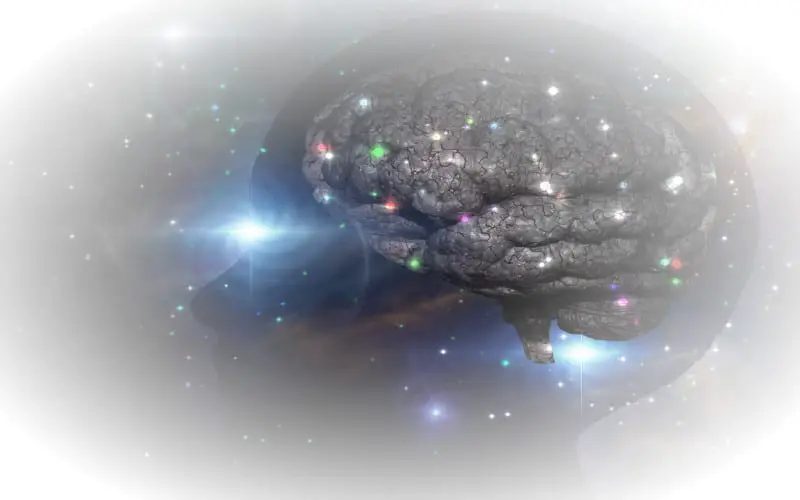Some experts believe that our “conscious experience” of being, well, human-beings on Earth, could be little more than a simple illusion.
But, when it comes to defining consciousness…, it’s sort of like describing the shape of water.
Most people seem to intuitively understand if something is conscious or not. But, when it comes to describing and defining consciousness, it creates more questions than answers.
Most would agree that people are conscious, but are dogs conscious? Are trees conscious ?
Are some people more conscious than others ? Does consciousness survive death ?
Are there different levels of consciousness?
In this article we’ll explore different perspectives, expert opinions, and the latest science behind defining consciousness.
Let’s Dive In.
What is Consciousness ?
According to Robert Van Gulick, the Director of the Cognitive Science Program at Stanford University, understanding consciousness will likely require many theories, and there’s unlikely to be any single perspective that fully explains consciousness.
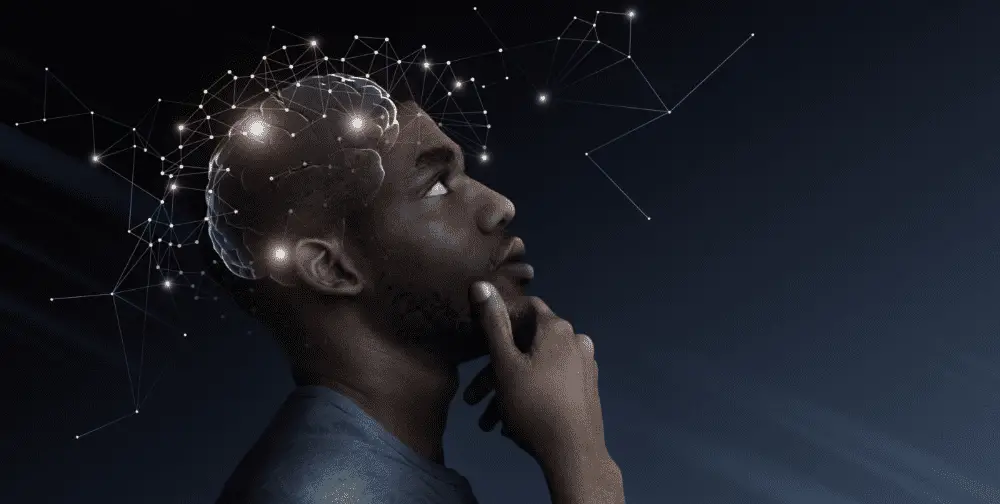
According to psychology author, educational consultant, and public speaker Kendra Cherry … “Consciousness can be described as ones individual-awareness and ability to act on unique thoughts”
Simply being “alive” is most certainly a pre-requisite for consciousness.
The “official” definition of consciousness according to the Oxford dictionary defines consciousness as “the state of being aware of something“
How do you define awareness ?
Plants are aware of the sun, and so is mold. Are plants and mold conscious?
Well, the Oxford dictionary defines “being aware” as “existing while knowing or realizing something”
By combining the Oxford definitions for ‘consciousness‘ and ‘aware‘, consciousness is re-defined as… “the state of existing, while simultaneously knowing or realizing something“
Using this definition, all living things from mushrooms, to ants, to cats, to humans would be conscious.
However, neuro-scienctists believe that in order to be conscious you need to have a brain. This theory would eliminate plants and fungi from the conversation.
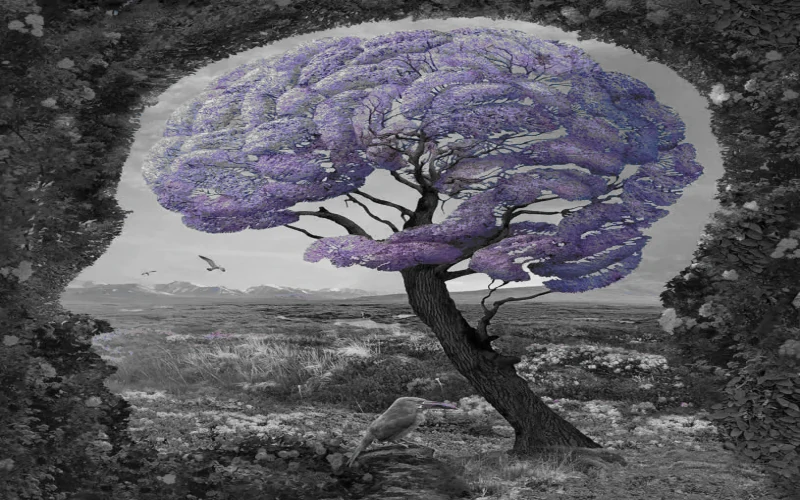
Despite the lack of an agreed upon ”exact definition” of consciousness, most experts agree that consciousness starts with being-aware…. Aware of your surrounding environment, aware of your place with-in your environment, and aware of your own internal perception of reality.
To better understand consciousness we need to break it down.
Psychological Levels of Consciousness
Sub-conscious vs. Un-conscious vs. Conscious
The founder of modern-day psychology, also known as “the grandfather of psychology”, Sigmund Freud believed that both your behavior, and your personality were formed from three psychological forces operating on different levels of awareness.
Freud believed that the struggle for awareness between the unconscious, sub-conscious, and conscious-mind plays an important role in influencing our behavior.
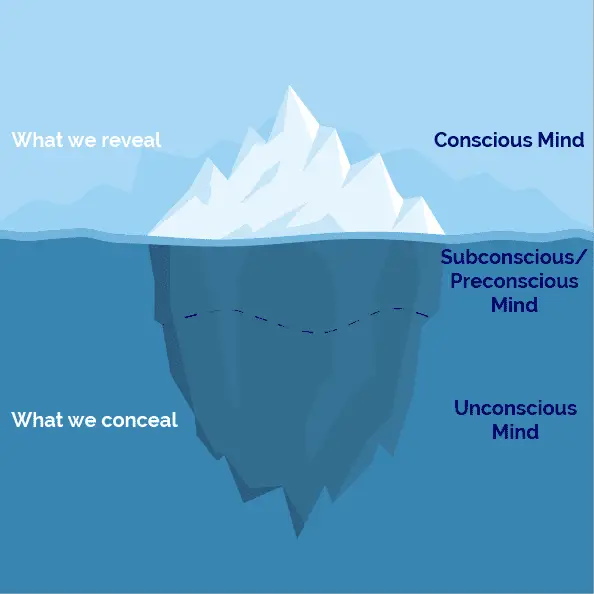
The Conscious Mind –
The conscious mind is everything you are aware of and thinking about right now. It’s your logical mind. Your conscious mind receives information from your five senses and is your present moment awareness of the world around you.
The Sub-Conscious Mind –
The subconscious mind is ruled by learned emotions and instinct. Our sub-conscious controls all “reactions” and “automatic-actions” that we can become aware of if we consciously think about them.
The sub-conscious mind is like a huge storage bank of information from which you can draw into your awareness with a conscious effort.
For example breathing is a sub-conscious behavior. You don’t actively think about your breathing, but when you pull breathing into your active awareness you can control it.
The Unconscious Mind –
According to Psychology teacher Dr. Saul McLeod, the unconscious mind is made up from automatic process that the conscious mind cannot access because they happen underneath conscious awareness. For example, our daily feelings, emotions, motives, and our everyday decisions are powerfully influenced by our past experiences which are stored in our unconscious minds.
Scientific States of Consciousness ?
Emotional states of consciousness aside, from a purely scientific perspective, researchers today can measure brainwave frequencies using an “EEG” (electroencephalograph).
With carefully placed electrodes, scientists can detect and record the electrical impulses from the brain. These brain wave impulses can be compared to radio frequencies or sound wave frequencies.
Although there’s dozens of radio frequencies, there’s five main brain wave frequencies which correspond to different states of consciousness.
If you ever heard of “binaural beats“, they work by matching sound frequencies to brainwave frequencies to invoke different states of consciousness and mindset.
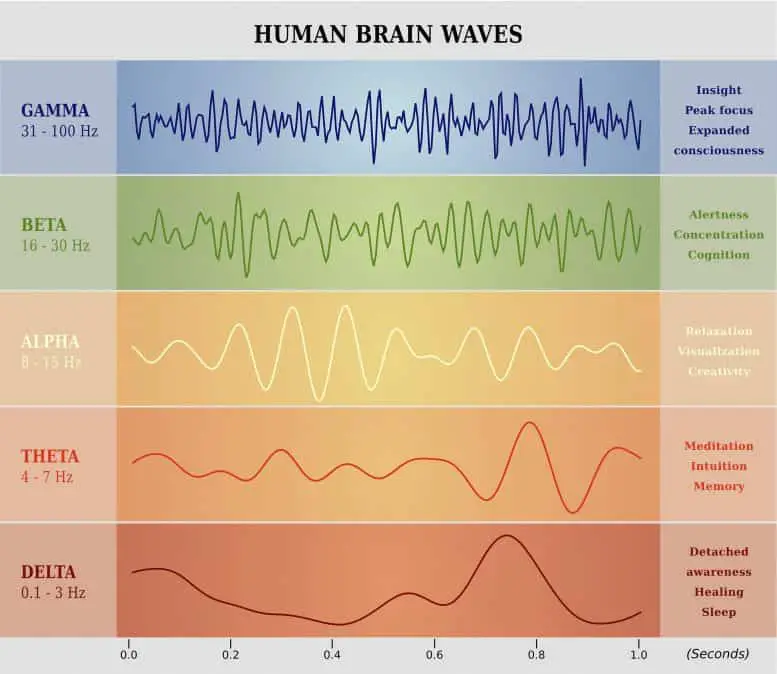
5 States of Consciousness:
Gamma State (25-100 Hz) –
Gamma state brainwaves operate on a frequency range somewhere between 25-100 Hz. Considered the “optimal state for high functioning”, Gamma state brain waves contribute to information processing, peak concentration, and learning.
The gamma state also improves memory and perception.
in 2019, studies of Tibetan Buddhist monks show a direct correlation between gamma waves and meditation induced states of consciousness.

Beta State (13-30 Hz) –
The Beta state of consciousness is the baseline state of the alert and waking mind. Your brain is producing beta waves as you are reading this.This state is common for being task-oriented, out in public, writing, and having conversations.
Beta consciousness is also associated with being goal oriented and getting things done. However, staying in this state too long is associated with over-thinking, worrying, higher levels of stress, and anxiety.
Alpha State (7-14 Hz) –
The Alpha state of consciousness is known to be a state of balanced emotions. This state of consciousness is usually a meditative and relaxed state. It’s known as a state of relaxed and detached awareness.
Because of the relaxation that comes with the Alpha state, tension, anxiety and stress are reduced which leads to mental coordination, alert calmness and the release of serotonin.
Alpha brainwaves are commonly associated with relaxation, creativity, problem-solving, and the “flow state” (getting in the Zone). Alpha is considered the gateway to meditation. Linda Gabriel, the founder of Thought Medicine, considers alpha waves the link between the conscious mind, and the subconscious mind.
Theta State (4-8 Hz) –
Theta waves are often associated with deep states of meditation, peak spiritual experiences, higher states of consciousness, deep intuition, healing, and creativity.
Theta brainwaves occur in your sleep and in deep meditation. The Theta state is most commonly “”consciously-experienced”” when your either ‘just waking up’ or ‘just falling asleep’. Typically your eyes are closed, and you are aware of yoru surroundings, but just barely.
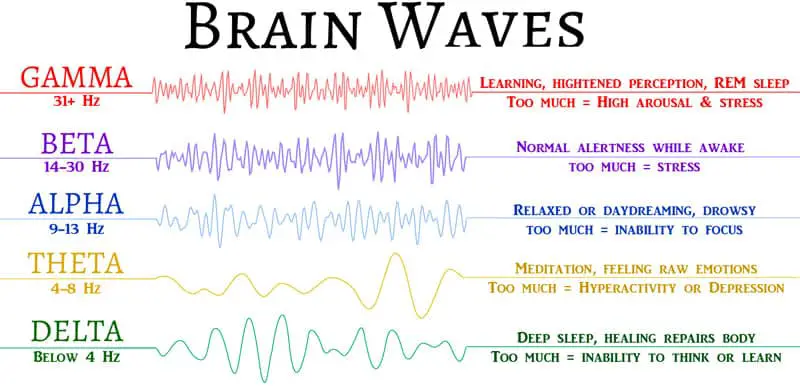
In the past I’ve used a “float take” where the point is to intentionally access your Theta state allowing your body to relax and your mind to calm. By consciously accessing your theta state it allows thoughts, memories, and ideas to flow more freely.
Delta State (0.1 – 4 Hz) –
The Delta state of consciousness is a ,”slow wave”, deep frequency experienced in the deepest of meditations and in dreamless sleep.
According to ScienceDirect, Delta waves are the slowest recorded brain waves in human beings and are most commonly associated with the deepest levels of relaxation and restorative sleep.
Delta waves promote feelings of empathy, extreme bliss, and allows for a connection beyond the subconscious mind and into our unconscious minds.
Consciousness Vs. Awareness
Since the definition of consciousness is based on how “”aware”” a person is…, and how aware someone is…, is based on existing while knowing about something…, then your level of consciousness is based on how much you know about yourself and your environment.
According to the Institute of Medical Psychology and Behavioral Neurobiology…
A person’s state of consciousness is interconnected with their level of awareness.
Dr. Robert Biswas-Diener, a professor at Portland State University, says awareness can be split into two categories. Lower level (contracted) awareness and higher level (expanded) awareness.

Lower Level Awareness (contracted awareness)
According to best selling author and a world-renowned pioneer in personal transformation,Dr. Deepak Chopra…, lower level awareness is the level consciousness where problems, obstacles, and struggle become insurmountable and the main point of focus.
At this level of awareness Dr. Chopra says answers seem limited and fear contributes to a sense of continuing confusion and conflict. Efforts to find or create solutions are typically met with emotional frustration.
It is commonly believed that those who remain at this level live with deep feelings of internal frustration and exhaustion.
Higher Level Awareness (expanded awareness)
Higher level awareness is where solutions begin to appear. Those with higher levels of awareness have a vision that “extends beyond the conflict”, giving them more foresight and clarity.
With higher levels awareness there is generally less struggle and obstacles become easier to navigate around and overcome. Those with higher levels of awareness accept negative energy and confront it rationally.
With greater expansion of the mind it gives clarity on best ways to progress forward toward your goals in life.
Awareness vs Self-Awareness in Consciousness
Experts often confuse “”awareness“” with “”self-awareness“” often using the two interchangeably when defining consciousness. While humans are clearly self-aware and clearly conscious, plants are aware of their environment, but are they self-aware? Are cats self-aware or are babies self-aware?
Is it possible to be aware with-out being self aware ?
‘General Awareness‘ and Consciousness
Awareness = Understanding your environment
General awareness is defined as being alert, conscious of your environment, and informed of what is happening externally around you. Theoretically, one can experience outward awareness without being aware of ones self.
‘Self-Awareness’ and Consciousness
Self-Awareness = Understanding your environment, your purpose with-in it, and your effect upon it
Self-Awareness is defined as ability to, not only be conscious of your environment, but also be conscious of your place within your environment and your effect on your environment.
When you’re more self-aware, you become more capable of understanding the environment and enacting positive change.
For a deeper dive into self-awareness, here an article we wrote on the Top 10 Signs Someone Is Lacking Self Awareness: According to Science
Measuring Levels of Awareness / Consciousness
Measuring consciousness is not an exact science. Academics can’t even come to a consensus on a definition for consciousness.
Much like the blended colors of the sunset, when measuring consciousness it’s difficult to pinpoint exactly where one color ends and the next starts.
Never-the-less, some researchers have made great strides in measuring levels of awareness, self-awareness, and consciousness. Dr. David Hawkins performed over 250,000 experiments and dedicated his life and career to measuring consciousness. As a result, he developed the widely praised “Hawkins Scale”. (see above)
This Hawkins scale is not an exact science, but it helps link emotions to levels of consciousness.
For example, Love is a ‘higher level’ emotion and jealousy (or anger) are ‘lower level’ emotions.
Final Thoughts: What is Consciousness ?
Stanford professor Robert Van Gulick is right, defining, measuring, and explaining consciousness, awareness, and self-awareness requires more than one perspective and explanation.
While scientists can record brain-wave frequencies measuring consciousness on one level, one’s level of general and self-awareness is hardly as measurable.
As technology, science, physics, our understanding of our universe, and our place with-in it , continues to expand, so will our collective understanding for consciousness itself and how to best define it.
Plats and animals may very-well both be conscious, just to differing degrees of consciousness.
Loved what you read?
Hit that share button and let the world in on the secret – we’d be thrilled!
Got thoughts? We’re all ears for your feedback, corrections, or a good old chat. Don’t be shy; drop us a line.
And hey, don’t miss out on our curated list of must-reads in the recommended books section.
Big thanks for diving in with us today!


